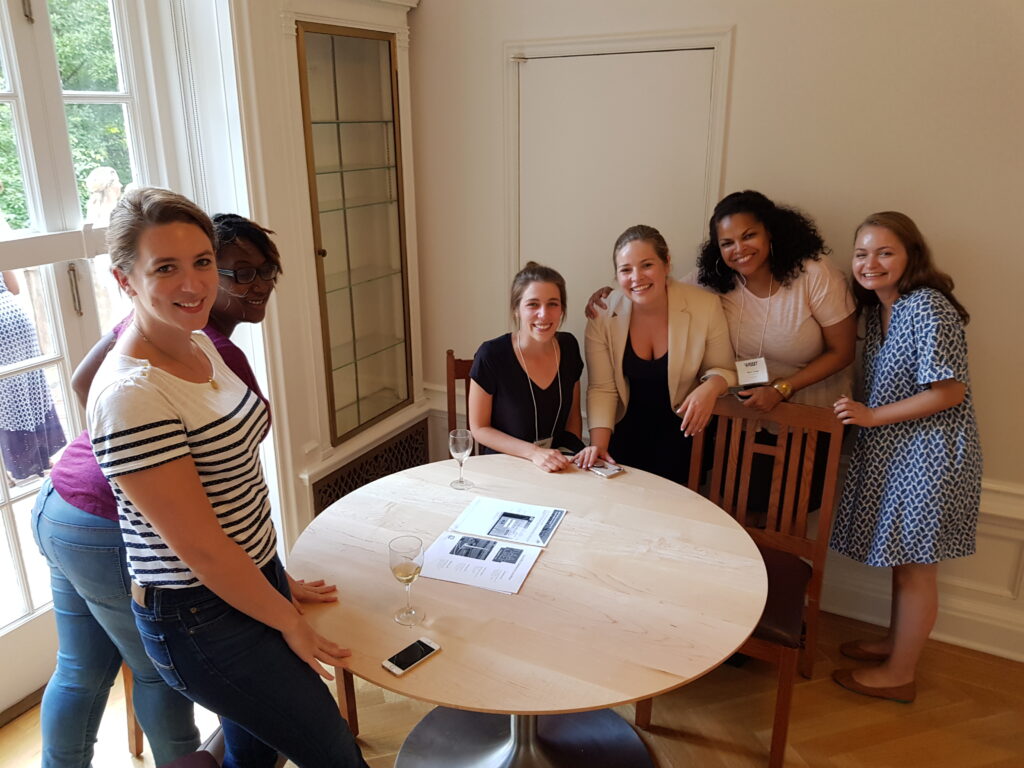
WISSIT Names Marci Jones to New Leadership Role
JR: Tell us a little about yourself. MJ: As a child, I grew up in Washington, DC, and attended DC public schools through middle school. Most recently, I returned to DC in the summer of 2016 and began my DCPS career at H.D. Cooke Elementary where I was honored to serve the students and staff as the first-ever Global Studies Coordinator. In my role there, I enjoyed working closely with teachers planning, implementing, and reflecting on Project Zero ideas, all with a global competence lens. At present, I am an instructional coach at Brightwood Education Campus. In addition to coaching, I have the absolute pleasure of teaching fifth graders reading, writing, and social studies. DC is where I’ve chosen to raise my daughter Zara. She is currently a kindergartner in DCPS. This is the city that raised me (1980s and early ‘90s DC) and shaped my view of the world. Although Washington, DC, is very different today, my love for this city has never wavered.


JR: How did you get involved with WISSIT?
MJ: My introduction to WISSIT was the summer before I began my role as Global Studies Coordinator. I attended a plenary session talk as a guest. The next summer, I became a fellow. My involvement with WISSIT was a natural extension of my role as the Global Studies Coordinator.
JR: What do you hope to accomplish in your new role as Coordinator of Participant and School Outreach?
MJ: In my role as Coordinator of Participant and School Outreach, my primary goal is to ensure that all participants are inspired to implement Project Zero strategies, understand the value of implementing them, and are able to leave with tangible ideas. I hope to support schools as they consider the shifts in thinking and culture that are required to implement PZ ideas school-wide, and individuals as they grapple with how they might begin this journey in the classroom.
JR: What do you feel WISSIT offers public school educators?
MJ: My mantra is “Education is My Activism.” I believe in the power of public education wholeheartedly, as I am a product of public schools. Teachers who pushed me at various times throughout my formative years were all public school educators. All children deserve an education that respects them as learners and thinkers. It is my firm belief that the ideas presented during WISSIT challenge, push, and empower teachers. WISSIT equips teachers with the tools to step back and place their students and the thinking of their students at the center of their planning, teaching, and reflecting. Public school educators are uniquely equipped with a keen ability to take prescribed curriculum and make meaningful learning experiences that their students will reflect on and remember long after they leave. I would submit that WISSIT will help public school educators consider how we make the transition from this idea that our students are empty vessels that we pour information into daily, to our students having a plethora of thoughts, ideas, and knowledge that we must tap into to help propel them forward and prepare them for life beyond the year(s) that they spend with us. WISSIT provides us with more powerful tools in our arsenal that we can use to engage and empower our learners.
JR: Thank you, Marci, and welcome to the WISSIT leadership team!